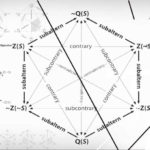We run our website the way we wished the whole internet worked: we provide high quality original content with no ads. We are funded solely by your direct support. Please consider supporting this project.
What is the significance of 2 Samuel 24:17–25?
“So the Lord answered [David’s] supplication for the land, and the plague was averted from Israel.”
The passage suggests that the Lord intended the plague to judge Israel further but David’s supplication persuaded him to change his mind and relent from his punishment. If the future is to some degree open and God is genuinely affected in the present by what we do and by how we pray, the urgency the Bible attaches to prayer begins to make sense. If everything is eternally settled, this urgency is compromised.
Category: Q&A
Tags: Open Theism, Q&A
Topics: Open Theism
Verse: 2 Samuel 24
Related Reading

Podcast: What Does God Actually DO in the World?
Greg discusses what a God, who takes his hands off of us, who gives up control for us, who accommodates for us, actually does in the world. http://traffic.libsyn.com/askgregboyd/Episode_0215.mp3

Divine Wisdom
Why doesn’t God end it all and stop the slaughter? Why does God allow suffering and evil to go on so long? Here, Greg offers two possible answers to these questions. Option A is that all evil somehow is designed by God and somehow brings glory to him. But Greg thinks Option B is a better explanation, and it involves…

Podcast: If the Future is Open, How Do You Explain Prophecy?
Greg considers prophecy through the lens of open theism. http://traffic.libsyn.com/askgregboyd/Episode_0448.mp3

The Logical Hexagon Made Simple
by: Greg Boyd The Hexagaon in a Nutshell For those of you who don’t have the twenty to thirty minutes it will probably take to read this essay but who nevertheless would like to have some idea of what the Logical Hexagon is all about, here is my two sentence elevator speech: The Logical Hexagon…

What is the significance of Hosea 11:8–9?
After plotting severe judgment against Israel (vs. 5–7) the Lord says, “My heart recoils within me; my compassion grows warm and tender. I will not execute my fierce anger… I will not come in wrath.” This passage shows that God experiences conflict between his compassion and his justice and that he sometimes alters his plans…

How do you respond to Acts 13:48?
“When the Gentiles heard this [preaching], they were glad and praised the word of the Lord, and as many as had been destined for eternal life became believers.” Luke does not specify when the Gentiles who believed were “destined for eternal life.” Calvinists rightfully point out that the Gentiles’ faith followed their being “destined for…
